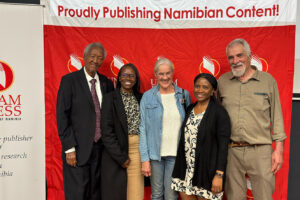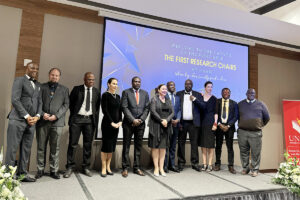The University of Namibia (UNAM) has signed a Memorandum of Understanding (MOU) with 4 other RUFORUM member universities to strengthen foresight capacity at African universities, support capacity building as well as strengthen collaborative academia and Industry research in Africa.
The MOUs were signed with Makerere University in Uganda, University of South Africa (UNISA), Botswana University of Agriculture and Natural Sciences (BUAN) and Chinhoyi University of Technology in Zimbabwe.
All four Vice Chancellors of the partnering universities were present during the signing on 13 August 2024, while the second RUFORUM Triennial Conference was taking place during that week, under the theme “Operationalising Higher Agricultural Education and Research Ecosystems for Innovation, Industrialisation, and Economic Development in Africa: A Call for Action.” A Conference which also marked the 20th RUFORUM anniversary.
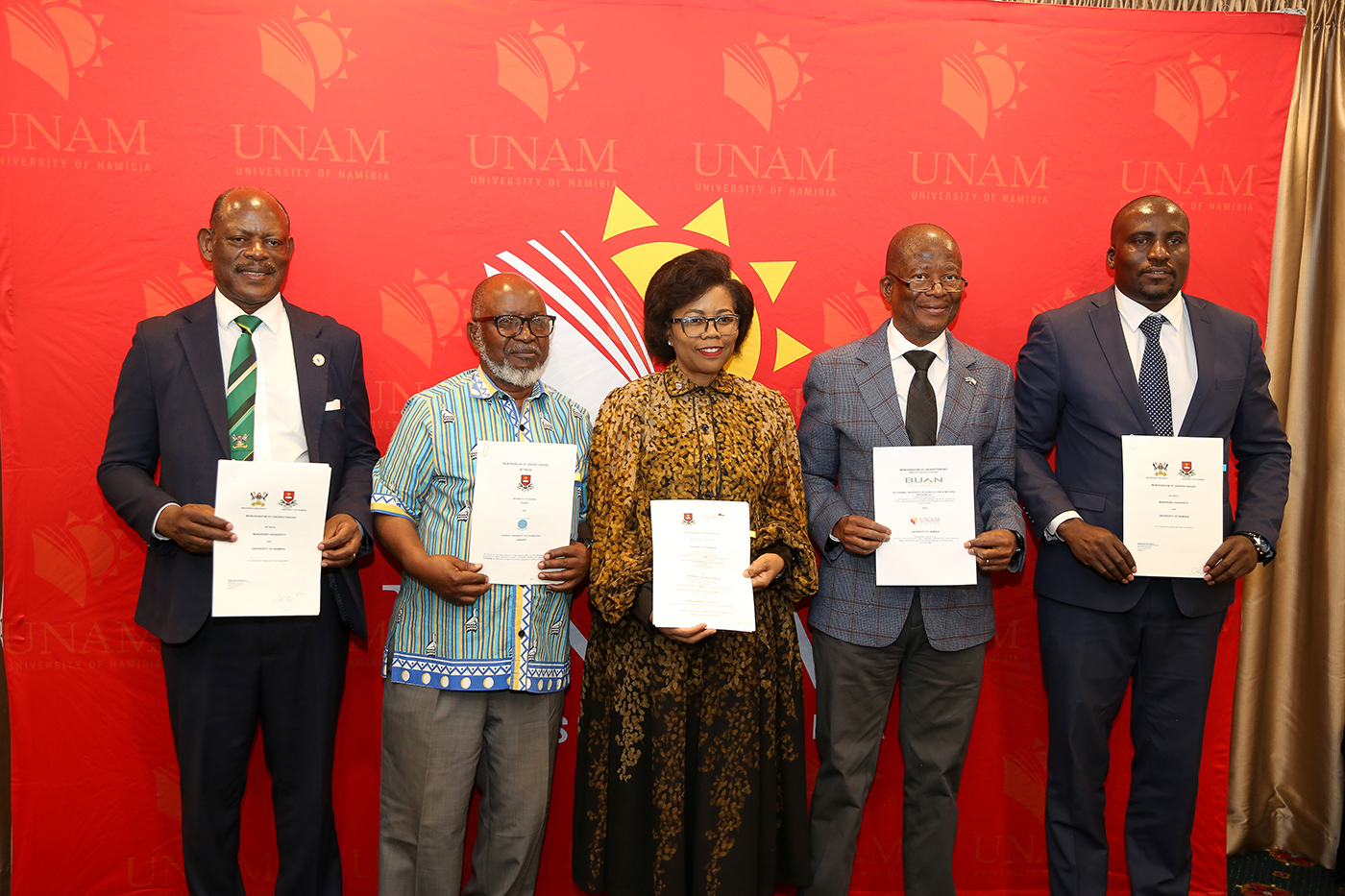
Speaking at the MOU signing ceremony, Prof. Kenneth Matengu, UNAM Vice Chancellor said that for a long time, universities in Africa have had more research collaborations with universities in Europe and America. He added that very few partnerships have happened among African Universities. “We need to focus on South-to-South cooperation within the context of Africa”.
Prof. Barnabas Nawangwe, Makerere University Vice Chancellor, confirmed an already existing collaboration with UNAM on a number of projects, which have seen many of their staff coming to Makerere University for exchange programmes. He stated that Makerere has been instrumental in helping to set up the School of Pharmacy at UNAM and that many students from Namibia go to Makerere for training. Prof. Nawangwe added that the solutions of Africa will be found within Africa and the work that the universities are going to do together will help towards moving Africa out of poverty. He signed the MOU in the presence of the Principal of the Collage of Agriculture and Environmental Sciences of Makerere University, Prof. Goretti Nabanoga.
On her part, Prof. Puleng LenkaBula, UNISA Principal and Vice-Chancellor, expressed her gratitude for the partnership with UNAM saying that it is important for universities to work together. She added that the partnership represents aspirations for growth and expansion for research, linkages in areas of mutual interest, including ICT, while promoting each other. She also challenged everyone to be intentional about the inclusion of women in awarding of scholarships and leadership positions.
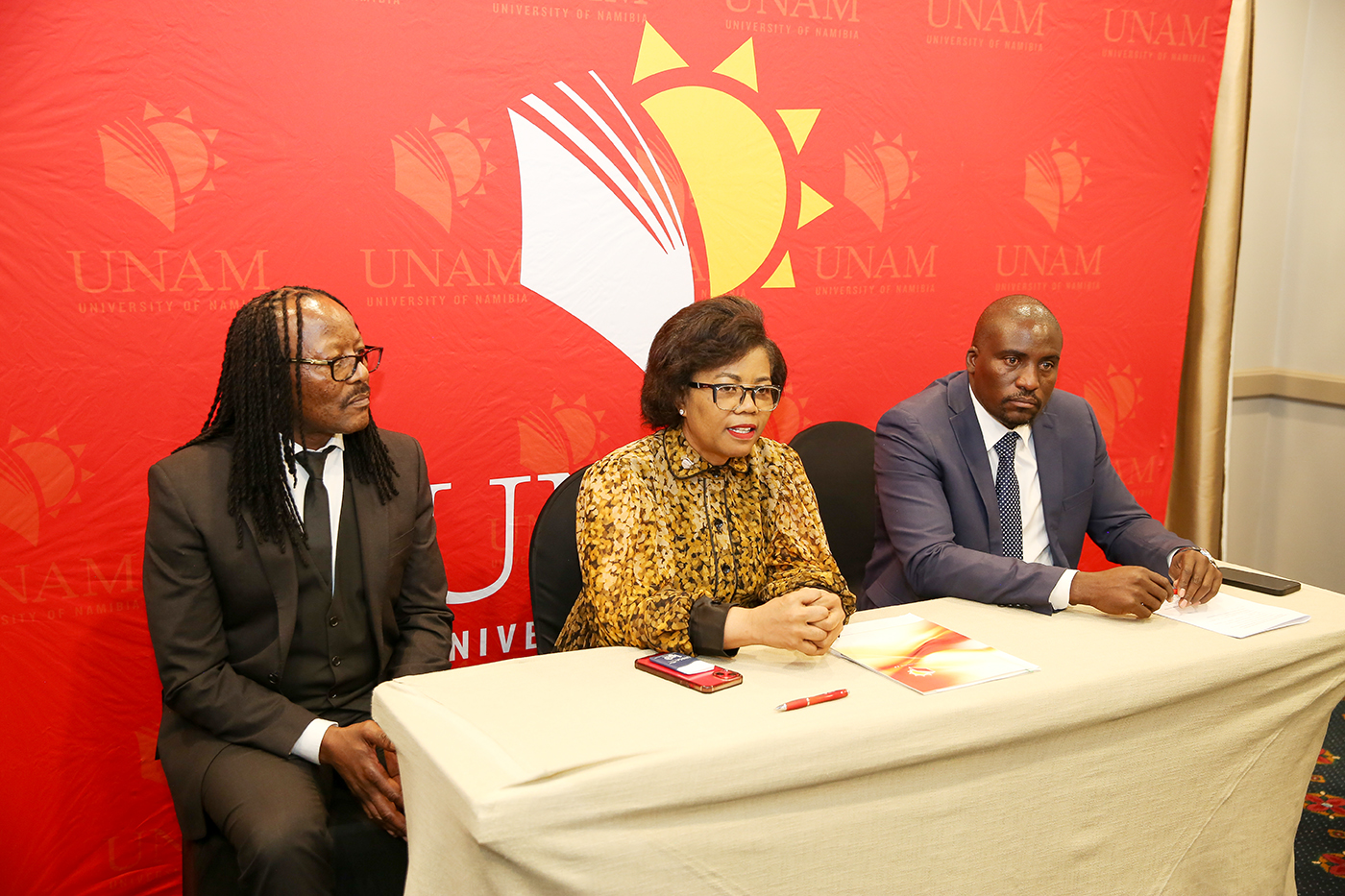
Prof Simbi, Vice Chancellor, Chinhoyi University of Technology, Zimbabwe, said that the partnership with UNAM has already been ongoing. The signing of the MOU was to simply formalise this partnership. He thanked UNAM for the initiative and the deliberate effort to work with universities in Africa to address African challenges.
The Vice Chancellor Botswana University of Agriculture and Natural Resources (BUAN), Prof. Ketlhatlogile Mosepele, confirmed existing partnerships with UNAM. He said that it is important to highlight that their core mandate is teaching in Agriculture and Natural Resources and that many ties bind the two nations of Botswana and Namibia who share the Kalahari Desert and therefore suffer similar challenges. He called for continental cooperating at all levels especially within Institutions of higher learning.
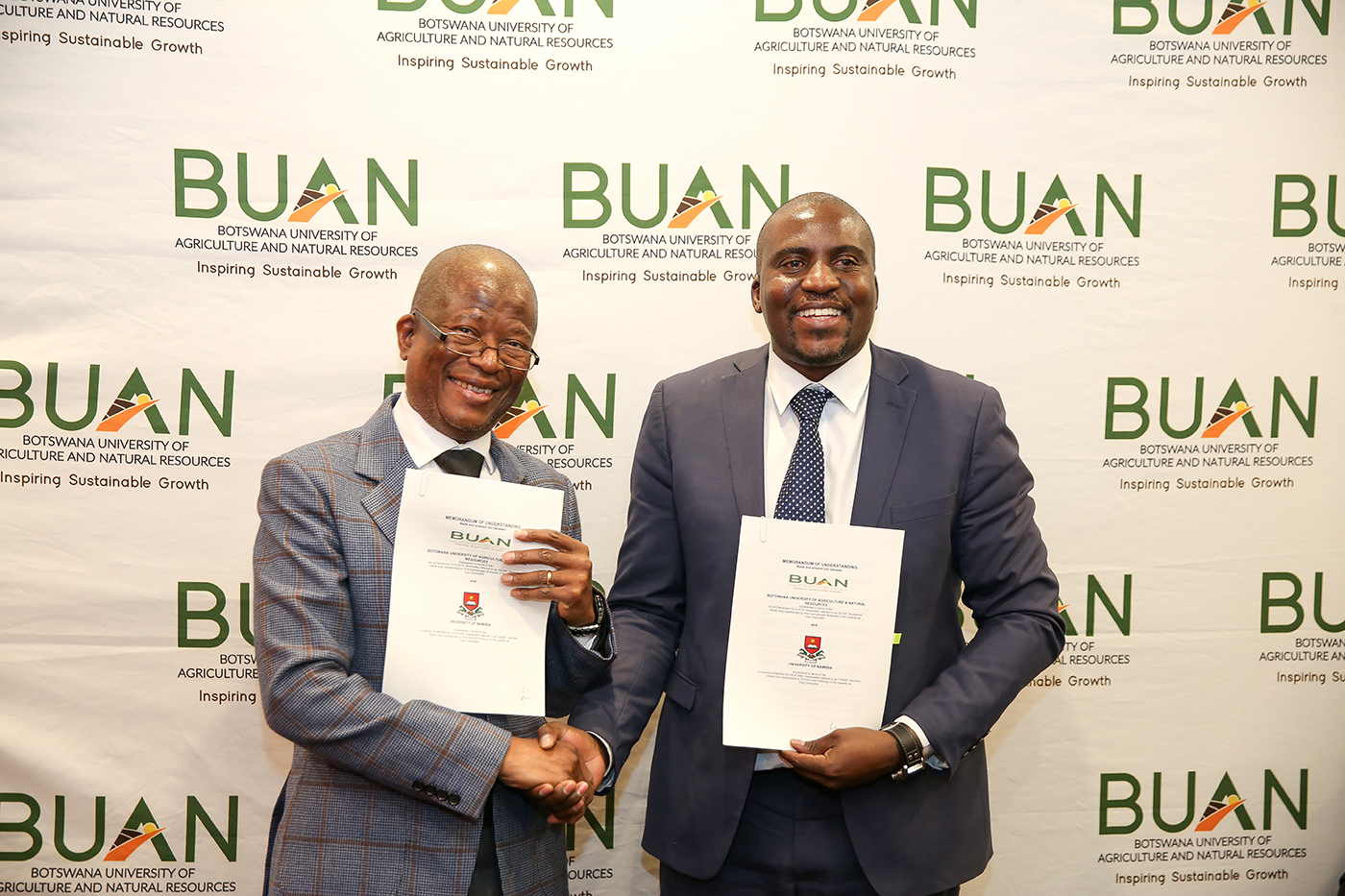
The African Union (AU) and European Union (EU) have agreed on an EU-Africa strategy within the Global Gateway, which aims to mobilise up to €300 billion in investments through a team Europe approach, bringing together the EU, its Member States and their financial and development institutions. It seeks a transformational impact in the digital, climate and energy, transport, health, and education and research sectors. Part of that investment is an allocation of €978 million for intra-Africa mobility, open to all African universities and accessed on competitive basis. There will be an annual callout in which a max of 15 – 20 projects will be funded.
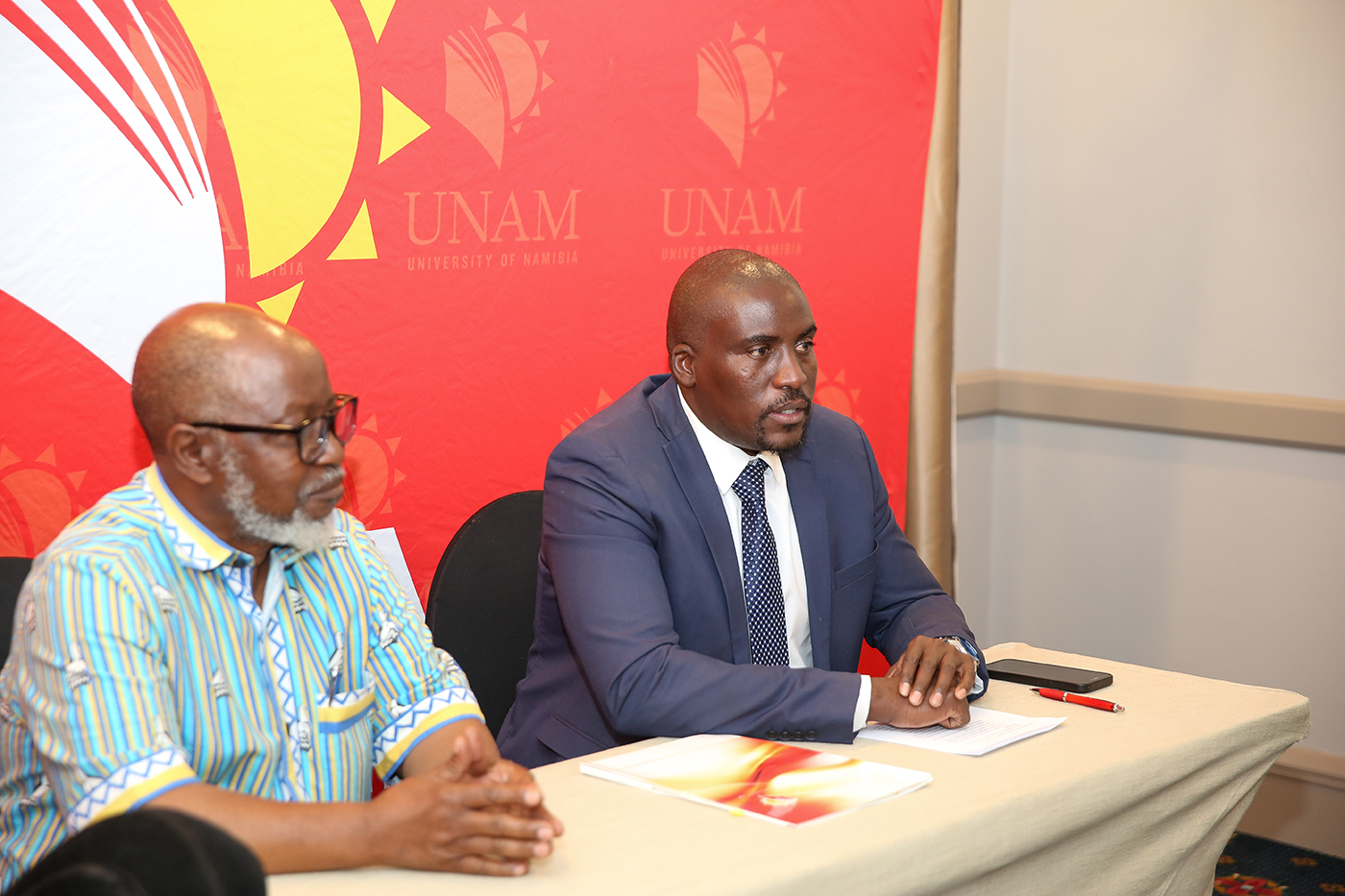
For universities in Africa, the main objective is to increase skills and qualifications across the African continent while collaborating with universities in Europe. This way, inclusive learning mobility opportunities will be promoted, the quality and relevance of Internationalisation of Higher education, especially in Africa will be improved and unemployment among higher education students and trainees will be addressed.
The eligible consortium composition must have a minimum of 4 and maximum of 6 Higher Education Institutions (HEIs) from Sub-Saharan Africa with one HEI from one for the EU member States (EU technical partner) with only one HEI in Africa as a lead applicant/coordinator. Other organisations from Africa can participate as Associate Partners. In order to benefit from this, the African must represent at least 3 of the 5 regions on the continent. If a university has the capacity to, it must host students from another partner university, only then can academic mobility be achieved.
This is why the RUFORUM member Universities that have now signed the MOU with UNAM plan to take full advantage of what the project will offer. Each project will receive up to the tune of €1.8 million.
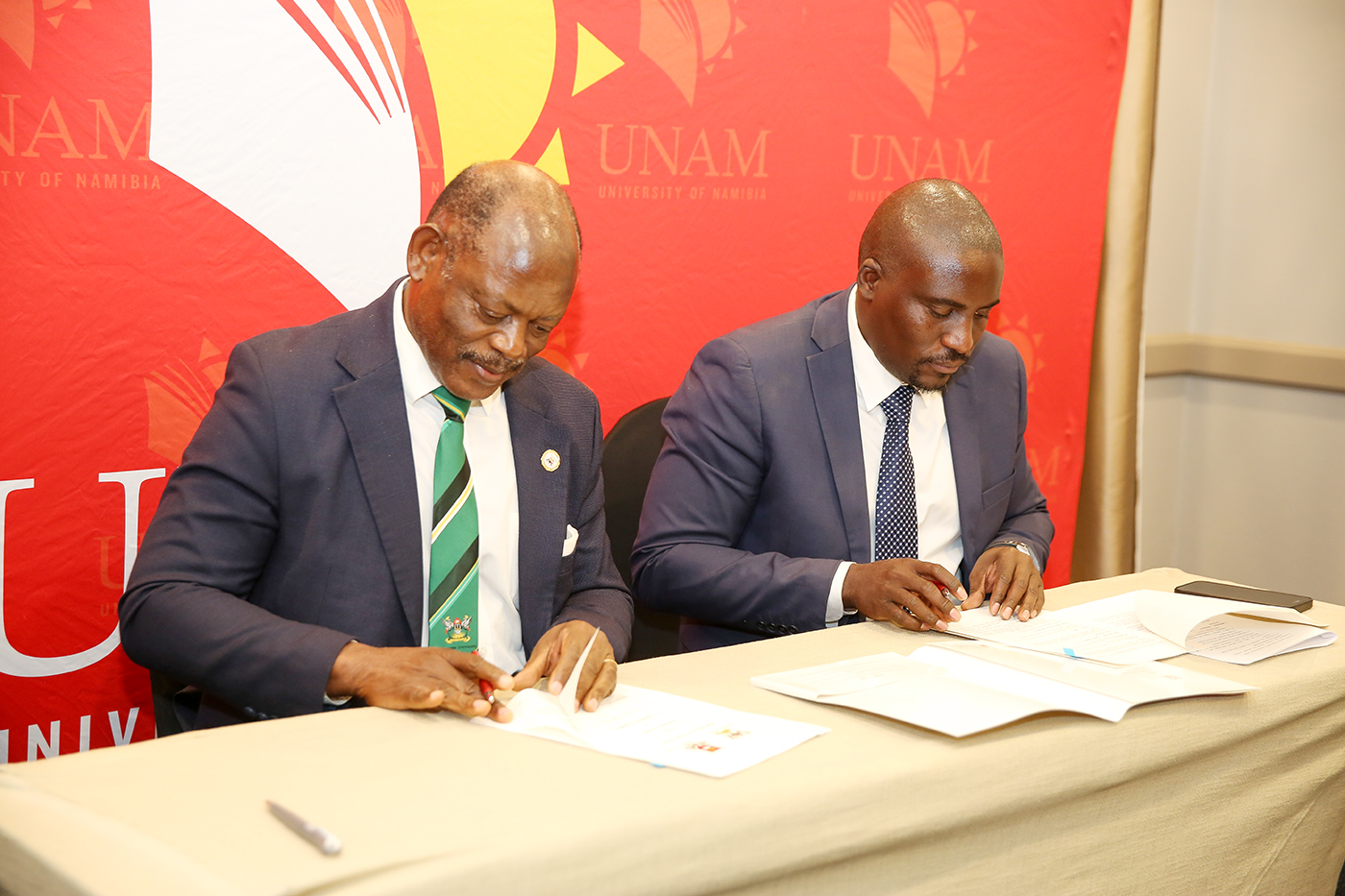
A part of that funding to UNAM will go towards creating an academic portal ‘study in Africa fund portal’ for quality assurance of Higher Education in Africa to enable common accreditation of different system, Anglophone, Lusophone, and Francophone. There are also plans for the portal to enable transfer of credit for student studying and hoping to study in Africa.
Original story published here.



